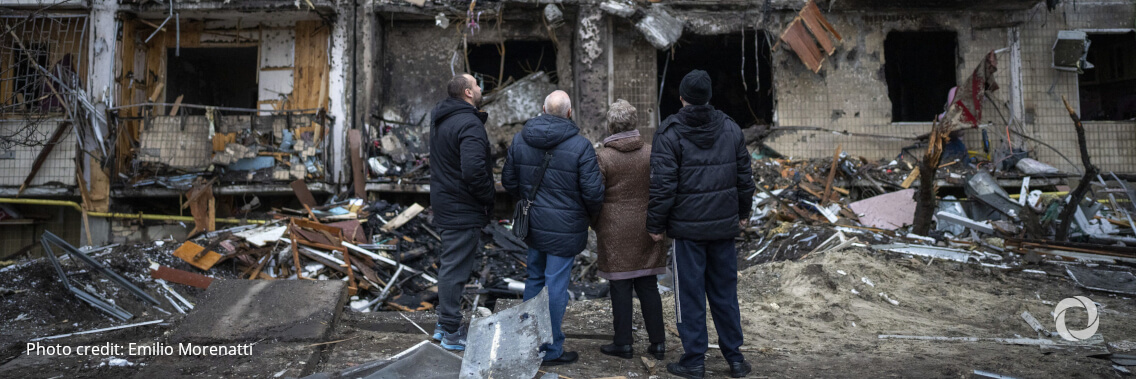Even before the recent events that “convulsed the world” last week, the UN Emergency Relief Coordinator reminded that an eight-year-long conflict in Eastern Ukraine had already level three million people in need of humanitarian assistance “on both sides of the contact line”.
Martin Griffiths, who also serves as the chief of the humanitarian affairs, told journalists that the UN and its partners had been responding to that need for these many years.
“This year alone, for example, UN-coordinated humanitarian convoys delivered over 150 tons of assistance to the most vulnerable people in the non-government-controlled areas in the Donbas,” he said.
Ukraine under fire
Women, children, the elderly, people with disabilities, those living close to the contact line, and those living in the non-Government areas are currently the most in need.
“They continue to require food, shelter, health care, water and sanitation, and protection,” the senior UN official said.
He painted a grim picture of shelling on urban centers across Ukraine and unconfirmed reports of human casualties and damage to residential infrastructure, expressing extreme concern over the impact of the ongoing escalation.
“We are concerned about reports of population movement…fleeing in search of safety and protection,” continued Mr. Griffiths, saying that hundreds of thousands of people are “on the move in Ukraine and out of Ukraine, as we speak.”
UN remains in Ukraine
The UN emergency coordinator echoed the Secretary-General in stressing that UN humanitarians are committed to continuing and expanding its presence.
“We have not left. We are not leaving Ukraine,” he spelled out.
As people there are “bunkered down,” Mr. Griffiths said that the UN is scaling up its efforts to help meet the needs of those affected, “and we have been doing this for some weeks.” And at this alarming phase of escalation, he flagged that the safety and security of all UN staff and their dependents are a top priority.
“We are currently facilitating the temporary relocation of non-essential UN staff and eligible family members within Ukraine,” said the Emergency Coordinator.
In the meantime, the UN Office for the Coordination of Humanitarian Affairs (OHCHA) has set up an interagency operation center in Geneva and will be launching an appeal. It will bring together the needs for the region outside Ukraine, under the leadership of the High Commissioner for Refugees Filippo Grandi, as well as for those within the country.
$20 million allocation
Turning to the UN chief’s announcement that $20 million would be released from the Central Emergency Response Fund (CERF) to increase an immediate response, Mr. Griffiths attested that it was imperative for the scale of need in these “very, very extraordinary circumstances.”
“In the coming days, we will launch two coordinated emergency appeals in response to Ukraine’s escalating humanitarian needs – including rising internal displacement – and the needs of people seeking refuge in countries neighboring Ukraine.”
He explained that donors were needed to mobilize the financial resources, which will be outlined in a few days.
Humanitarian safety first
The most important point, Mr. Griffiths continued, is the safety of UN humanitarian workers and that humanitarian partners have “safe, unimpeded access to conflict-affected areas.”
“As always, our humanitarian response is guided by humanity, neutrality, operational independence, and impartiality,” he emphasized.
In conclusion, the senior UN official reminded us that 50 per cent of the wheat used by the World Food Programme (WFP) comes from Ukraine, which illustrates that the effects of the crisis are “spooling out before us, and we have yet to see where it will lead”.

